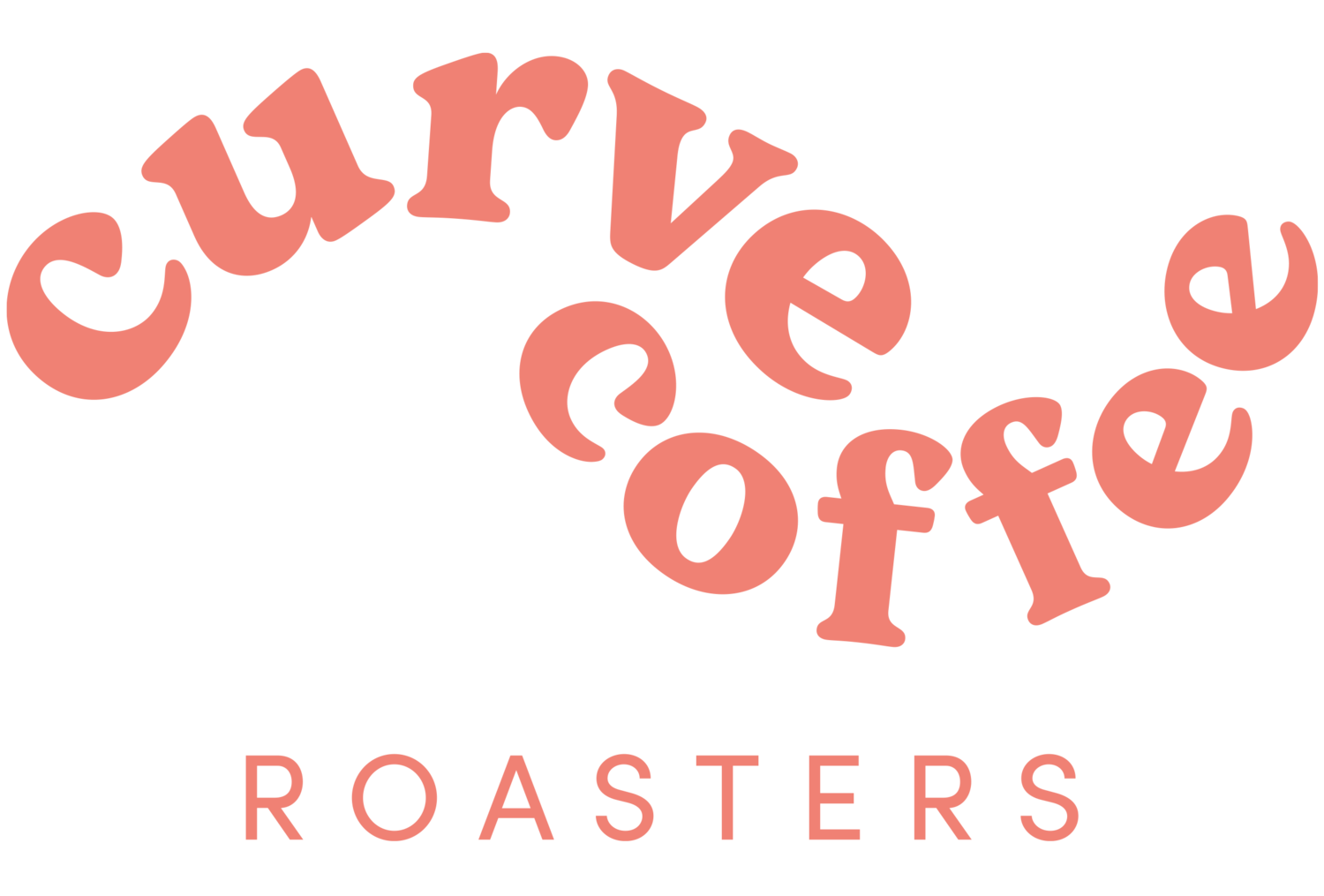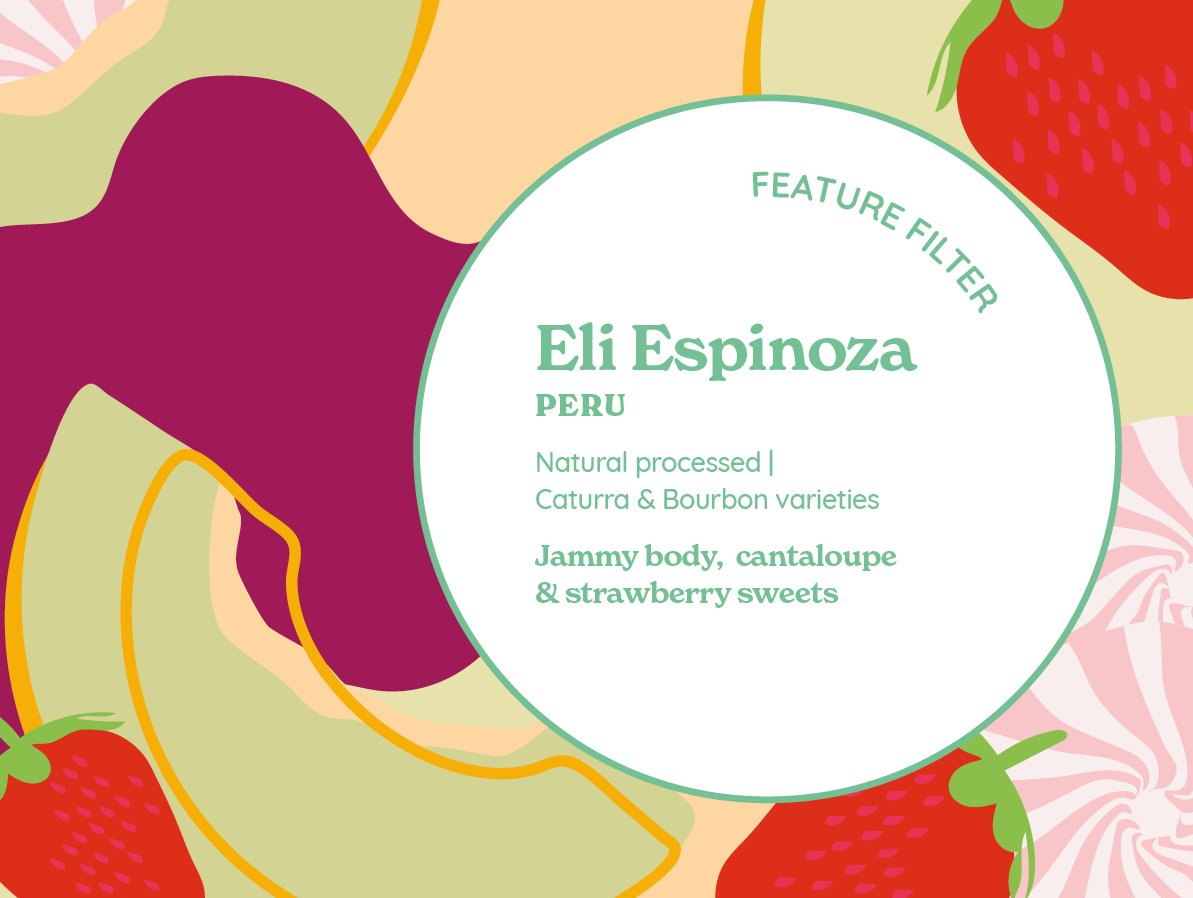Feature Filter: Eli Espinoza | Perú
Key Origin Info:
Producer: Eli Espinoza Soberon
Processed at: Eli’s processing station
Region: Alto Pirias, Chirinos, Cajamarca
Altitude: 1650 - 1900 masl
Varieties: Caturra & Bourbon
Process: Natural, dried on raised beds
Exporter & Importer: Falcon Speciality
Cup profile: Jammy body, strawberry sweets & cantaloupe melon
Purchasing history: 3 years
Eli and his drying beds with drying coffee parchment.
About Eli & his coffee:
Eli is a young dynamic coffee producer and owner of 4 hectares of coffee planted land in the Alto Pirias area near the village of Las Pirias in the Chirinos district in Cajamarca region of Northern Peru.
Eli has a few parcels of land spread around the village in altitudes between 1800 – 2000 masl. Some parts of his land are planted with Typica and others with Caturra & Bourbon. He has come to the area as a teenager looking for work on farms and he started picking coffee in the village. After a while he was able to buy his own land and house and started working to produce his own coffee. Eli now processes all his own coffee at his house which sits at 1800 masl and sells it in parchment to the Falcon Speciality warehouse in Jaen.
In recent years, Eli has made some trials with natural processing of his coffee. After seeing that, when done well, the process can greatly alter the flavour profile of his coffee, yielding higher sales prices for higher cup scores, he has invested in a large solar dryer. This has increased his drying space capacity and it also allows him to have more control over the drying process and produce great quality natural lots alongside his washed coffees.
We are delighted to welcome Eli’s natural back again for the third season. This particular lot was washed and floated in cherry to separate out underripe fruits before undergoing drying under shade for one day and then being moved to the solar drying tent where it dried slowly under controlled conditions for 45 days. The resulting cup is sweet and jammy, with flavour profile reminding us of strawberry sweets and cantaloupe melon.
About Falcon Peru:
Background on Peru and Por El Cambio project:
POR EL CAMBIO means FOR CHANGE. The project has been established in Cajamarca, Northern Peru by our importing partner Falcon Coffees in 2019.
As Falcon explain:
In Peru, like some other origins, coffee farmers are sensitive to market changes and often lack basic training and the incentive to produce higher qualities of coffee, as premiums often don’t materialise. For these reasons we decided we needed to change the way we buy coffee in Peru and work directly with producers, allowing us to control and improve upon existing quality and have full financial traceability. Ensuring these two factors would help us to pay higher prices for the coffees and to make sure that producers received a fair price for the coffee they delivered us, above the market price. In order to do this, we set up a warehouse in Jaen and started to buy in parchment directly from producers.
The vision was to work directly with small producers who aren't associated with or able to sell their coffee through local cooperatives. They represent 75% of producers in Northern Peru and are usually based in remote areas with little or no access to training and price premiums adequate to the quality of coffee they are able to produce. This can leave their income often dependant on local aggregators who buy their coffee at farm for cash before selling it on which results in the producers being paid very little and the potential and quality of their coffee being lost.
Falcon's team on the ground in Peru, have established relationships and now work with around 300 small producers who bring their coffee in parchment directly to their warehouse where individual lots are graded, yield calculated and assessed for quality. Producers are then paid on the same day according to a transparent system (based on cup score and yield) and receive premiums well above the local market price. Aside from gaining access to a fair market, producers are also able to receive training on farm management, good harvest and processing practices.


